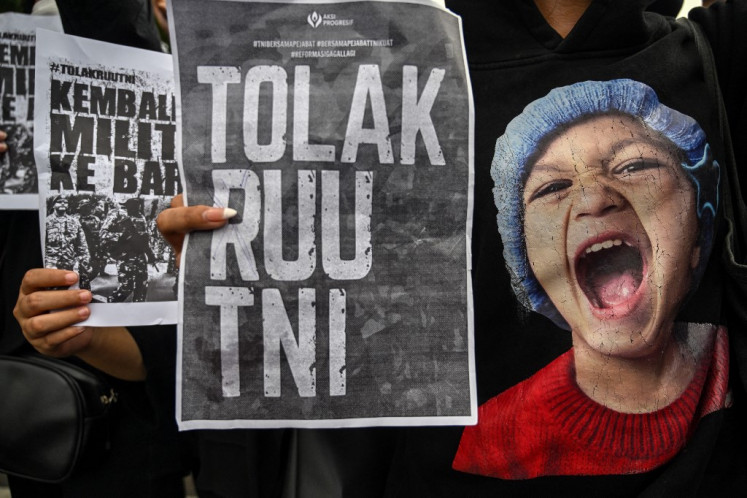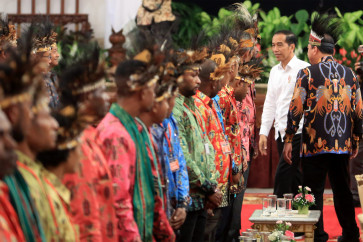Asian, Melanesian: Reorienting Indonesia's foreign policy
But have we done enough to admit our Melanesian identity or do we still tend to view Melanesia as the other, which is sometimes considered a threat to our dominant identity as an Asian nation?
Change text size
Gift Premium Articles
to Anyone
 President Joko “Jokowi” Widodo meets Papuan public figures at the Presidential Palace in Jakarta on Sept. 10. Jokowi has met with Papuan leaders and residents several times in Jakarta since tensions escalated in the restive provinces in August. (JP/Seto Wardhana)
President Joko “Jokowi” Widodo meets Papuan public figures at the Presidential Palace in Jakarta on Sept. 10. Jokowi has met with Papuan leaders and residents several times in Jakarta since tensions escalated in the restive provinces in August. (JP/Seto Wardhana)
R
ecent racial slurs against Papuan students in Surabaya and Malang and the Papuan reactions that have caused the destruction of public facilities in several cities in Papua have generated yet another dimension to identity politics in Indonesia. Are there any repercussions from those incidents for Indonesia’s foreign policy?
Aside from calls made by several parties to work out an internationally mediated negotiation to address the Papua question, the incidents actually question the very nature of the identity of Indonesian nationhood, which in turn is reflected in its foreign policy.
Since its inception, Indonesia has considered itself a Southeast Asian nation; more specifically, a country with citizens that identify as part of the Malay race.
In fact, most Indonesians belong to the Malay Muslim world. But geographically, and even demographically, Indonesia is much more than just that. There are at least five provinces whose native population belongs to the Pacific Melanesian race.
These provinces are Maluku, North Maluku, East Nusa Tenggara, West Papua and Papua, which all comprise almost 40 percent of Indonesia’s territory. With 13 million people inhabiting these provinces, most Melanesians are actually Indonesian citizens.
Outside Indonesia, the Melanesian population is only around 10 million people, inhabiting the western part of the Pacific Islands. Even if Papua had not been incorporated into Indonesia in 1969, Indonesia would still have a sizeable Melanesian population.
Ironically, Indonesia’s foreign policy challenges both in the past and nowadays often come from the Melanesian region. If in the past, East Timor, another Melanesian region, comprised Indonesia’s toughest foreign policy challenges, nowadays, it is Papua. Indonesia is often accused of carrying out colonial practices in these regions.

















